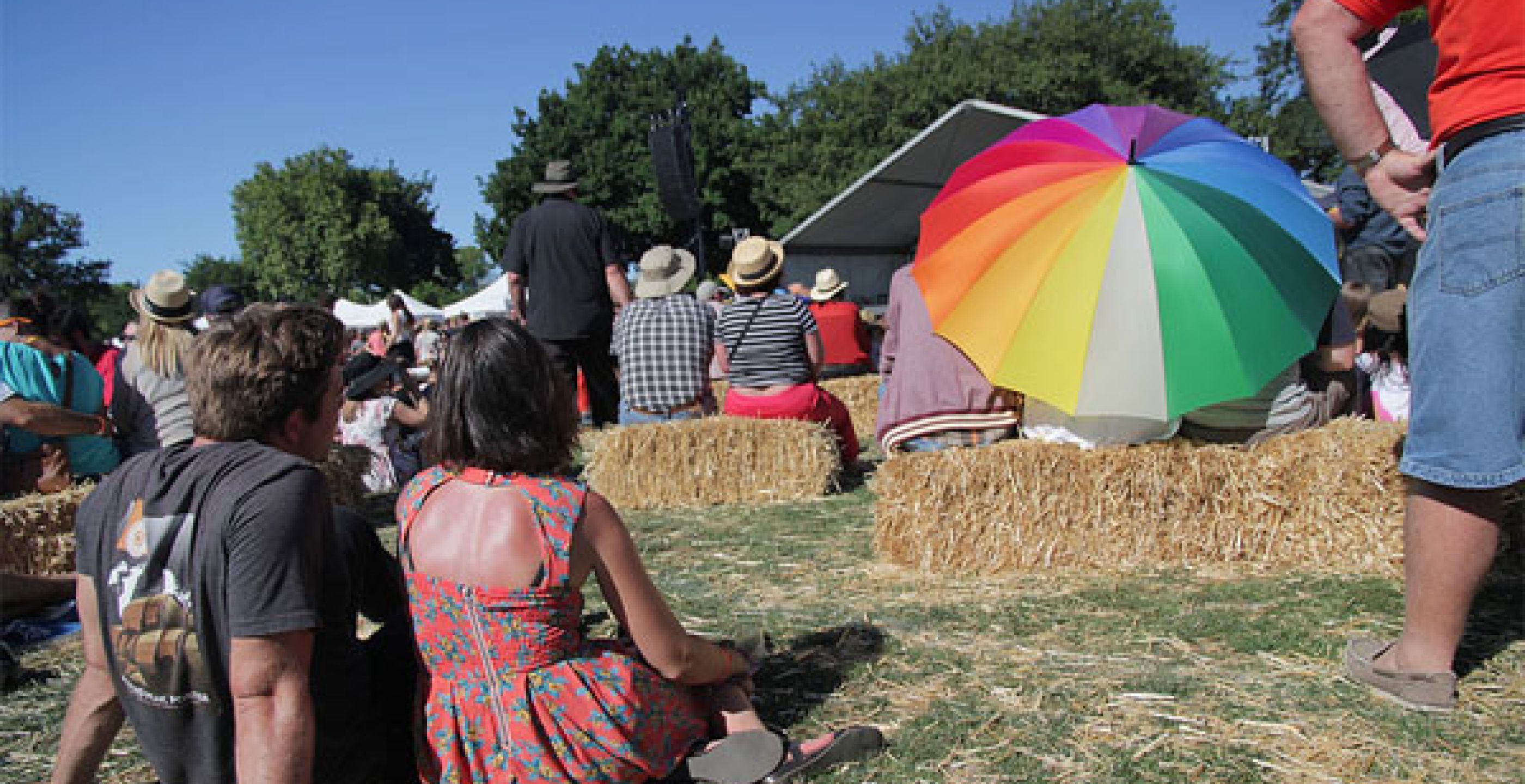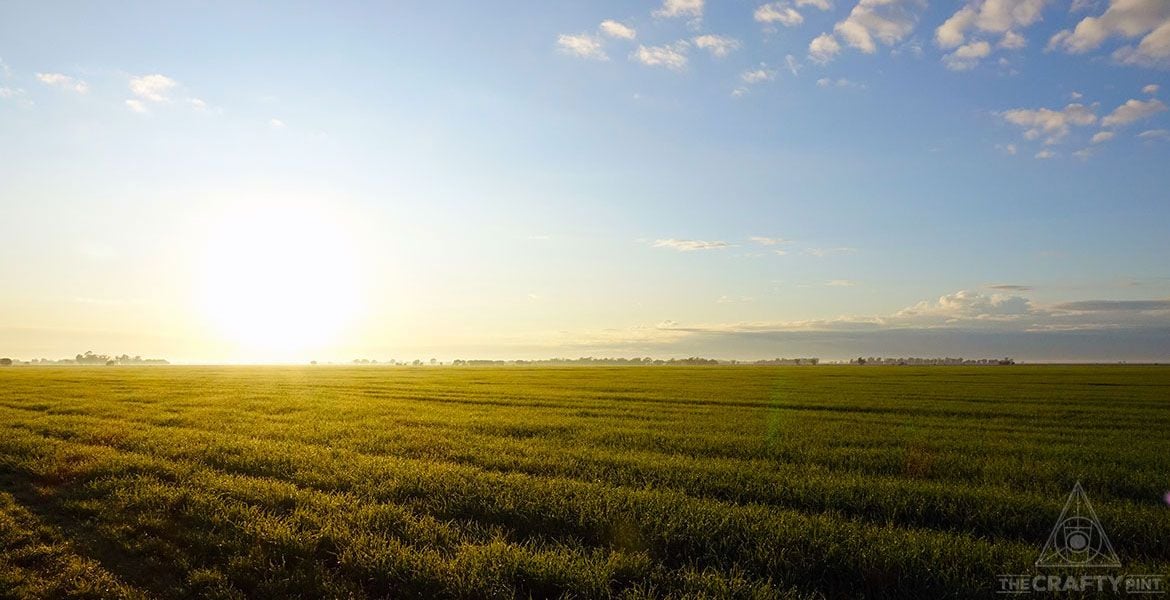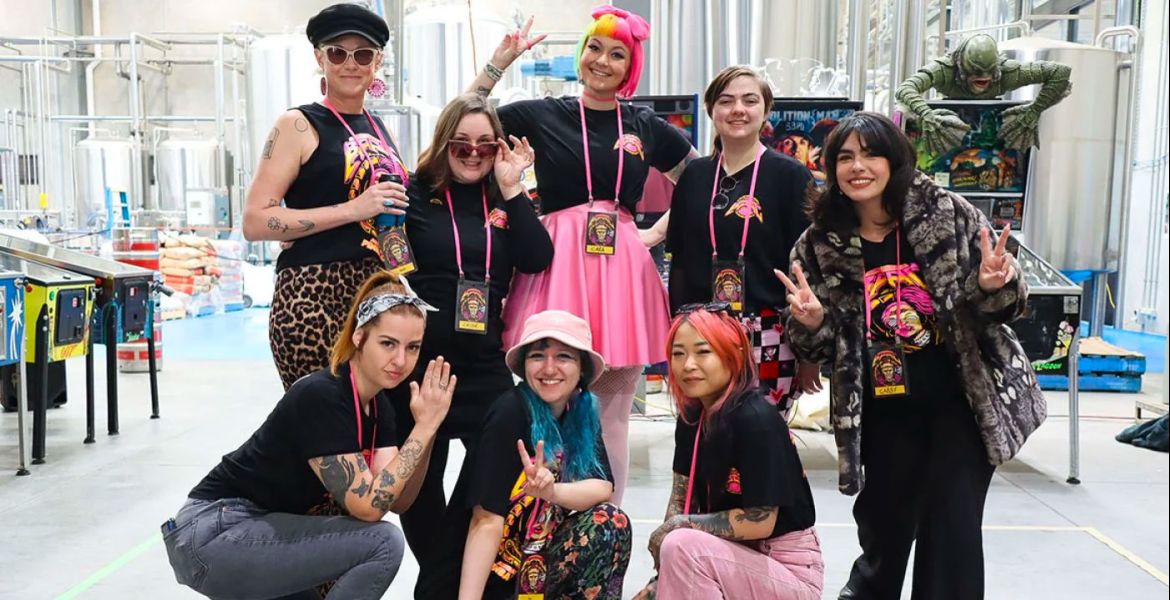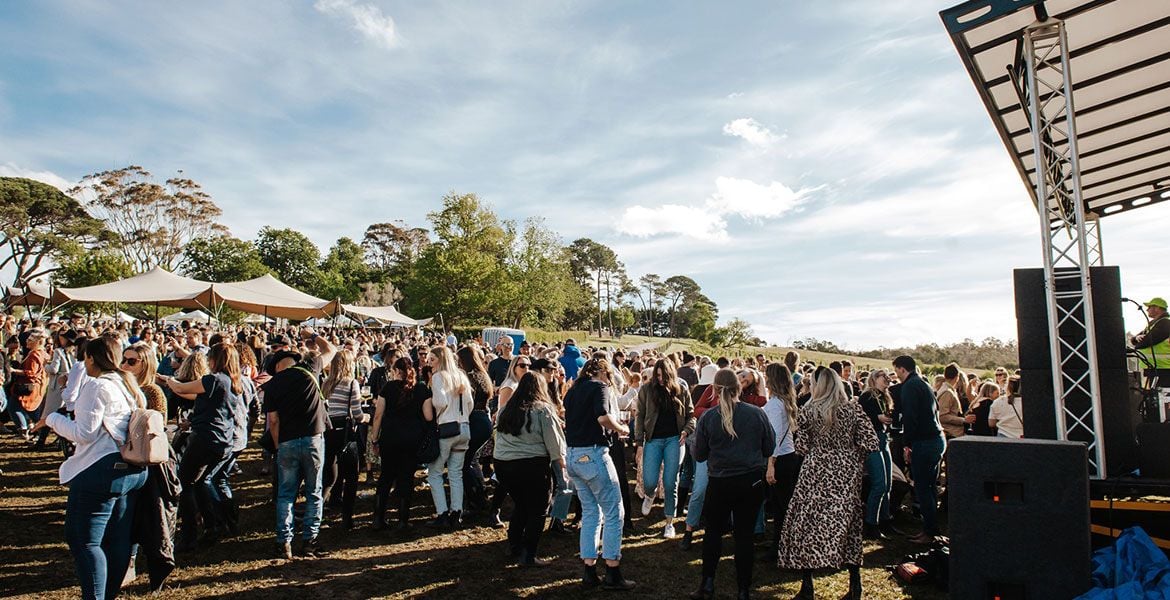The beer festival scene is booming in Australia. In a few short years, we’ve gone from next to no dedicated beer festivals to an absolute smorgasbord, with more being added every year. From November to February, there are more than a dozen major beer festivals taking place in Australia, leaving barely a weekend untouched.
This plethora of festivals is putting brewers under ever-increasing pressure, as they struggle to choose which events to allocate their (often limited) resources to. At the end of last summer, grumbles were muttered into the foam of pints and complaints raised as kegs were loaded into trucks and Utes. Questions included:
- Are there too many festivals?
- Are too many breweries losing money at them?
- Are some festivals taking too a high a cut?
As we face down the barrel of another summer packed with even more festivals, it’s time to take a fresh look at these questions. This article takes an informal look at beer festivals, their organisers and stall holders, and examines whether festivals are offering brewers enough incentive to give up their weekends and their money to promote themselves. It’s by no means a comprehensive review, but it is hoped that it will act as a springboard for other discussions.
What’s on Offer
Drawing comparisons between beer festivals is difficult – you’re not just comparing apples with oranges, but apples with the whole fruit shop. Each festival has its own system of charges and rebates, as well as a different set of proposed benefits of attendance. The cost of a stall at a medium to large beer festival can be anywhere from free to a $600 rental fee or a sizeable donation of stock. This outlay generally gets brewers a stall, table, and sometimes little else. In addition to the costs charged by the festival, there is a variety of other expenses for brewers to attend, including transport, equipment rental, and staffing. Altogether the costs to the brewer can run into hundreds or thousands of dollars as well as a significant investment of time.
In return for this investment, there are a variety of advantages proposed. Organisers contacted for this article consistently promised two main benefits from their events, both in their proposals to brewers and in response to our direct queries. They were:
Exposure to a new markets (both customers and distributors/stockists)
With craft beer expanding outwards from the major cities into the regional centres (places like Newcastle and Bendigo), festivals are introducing more punters to the variety of beers available and demonstrating to local venues the popularity and viability of good beer.A chance to interact with the customers and build up the brewery’s brand awareness
Craft beer, like any upmarket beverage or foodstuff, is dependent upon establishing a sense of authenticity, as well as ‘educating’ the customer about their products. At beer festivals, punters can meet the people behind the beer, building up the relationship of authenticity and their knowledge of the product.
Generally speaking, these two benefits are what brewers want from a beer festival: exposure and interaction. Mark Waghorne, National Sales Manager for Mountain Goat, mentioned similar priorities. With a good foothold already in the Victoria market, Mountain Goat are now prioritising interstate festivals – skipping the local ones, such as a Beers By the Bay, Ballarat, and Bendigo, in favour of NSW and WA events. They’re looking at festivals as a means to introduce more punters to their beers. Mountain Goat also try to get a brewer along to each of these festivals to chat to the punters, with Mark stating it’s a "waste of time not talking to people" and missing the opportunity to showcase not just their product, but their people.
Exposure to new markets and brand awareness, however, are both quite ephemeral benefits. What about cold hard cash?
Direct financial returns for the brewers primarily comes in the form of tokens, the exchange of choice at the majority of beer festivals. Again, what’s on offer can vary considerably, from 66 to 70 per cent of the token’s value to just 30 percent. Alternatively, some festivals, such as the Tasmanian International Beerfest, operates a token system and allows brewers to sell their product – both draft and packaged – for cash, setting their own prices and determining their own profits.
Of the brewers spoken to, however, only a couple expected to make a profit from a day (or days) spent at a festival. Most expected to break even and recover their costs from the day, with Josh Uljans of Moon Dog stating they’ve "never gone to a festival to make money." Heath Shirtcliffe of Cavalier and Jayne Lewis of Two Birds Brewing both said breaking even was their financial goal of the day.
With the aim of a festival being to increase brand awareness and later sales, the question: "Are brewers getting their money’s worth?" is difficult to accurately quantify, as we cannot tell to what extent they are succeeding. Without asking every beer purchaser in the general vicinity why they choose to buy that particular beer, putting a financial benefit on attending this festival or the next is near impossible. In this way, beer festivals are a gamble – but then what part of running a business isn’t?
The Business of Festivals
And festivals are just that: a business. Any large event, and particularly one with alcohol, racks up significant running costs. Several of the organisers spoken to commented on the surprisingly large cost of putting together a beer festival, especially first time organisers Darrell Billett (of Bendigo Craft Beer Festival) and Scott Meager (of the Williamstown Heritage Beer and Cider Festival).

Josh Uljans of Moon Dog (right) with brother Jake at this month’s Tasmanian International Beerfest
Darrell commented that when organising a beer festival,"you don’t think it’s going to cost that much, but it has….it all keeps adding up." He noted his largest costs were the venue (the Bendigo Racecourse), marquees, generators, and local marketing, which included local television, radio, and newspaper advertising.
Scott mentioned that among his costs "the toilets – I wanted to make sure that they are a very high quality so they were a surprise….and insurance is always a killer." All these logistical costs build up.
Often these costs are wholly unexpected. The organisers of the Small Brewers Beer Festival recently had to reshuffle their dates and venues after discovering that the only ticket provider allowed to be used for the Newcastle Showgrounds was Ticketek, who would then take 32 per cent of the ticket cost in “processing fees”. Fortunately the final contract had not been signed and a new venue was found or the event would have run at an unimaginable loss.
There are accusations that too many of these infrastructure costs are being passed along to the stallholders, at the sake of providing music, paying for celebrities, or simply so the organisers can make a larger profit. The Willoughby Craft Beer Fair makes a point of saying in its call for registrations that the fee for the stall is to "cover the costs of your marquee and related infrastructure and is not designed to generate a profit for the hotel." Whether this is in reaction to previous complaints or something the organisers feel passionate about is left unsaid, but it’s interesting that they felt the need to say it.
One particularly outspoken brewer, who preferred not to be named, gave a regional Victorian beer festival as an example of where he thinks organisers are valuing profit over the spirit of festivals. He estimates that in addition to the site fee, the festival organisers earned thousands of dollars from his stall in token redemptions.
He concludes it’s "actually a music festival that just happens to be promoted as a beer festival. They spend a lot of money on music infrastructure and music. If they didn’t, then the ticket price wouldn’t be as high, and they wouldn’t want to take as much from brewers." The anonymous brewer thinks too many festivals are going down this path.
Although the other brewers spoken to weren’t quite so critical, concerns were raised about the outlay of having music and other entertainment at the festivals and how much of this cost was being passed along to the brewer.
In a way, festivals are a continuation of the ongoing debate about who "genuinely" cares about the development of craft beer and who’s just "in it for the money" and taking advantage of a new trend. There’s a feeling that some beer festival organisers genuinely want to grow the craft beer scene, and help introduce brewers to more fans and vice versa, while others are just out to make a quick buck. Brewers are in disagreement as to what percentage of the organisers are in which camp, with viewpoints ranging from "they’re all bastards" to only some being involved in a "bit of a money grab.

What is true, however, is that the good will shine through in the end – just like in brewing. The wide variety of beer festivals means brewers can now choose which ones they choose to support and which ones they’ll choose to skip. Two brewery spokespeople – Jayne of Two Birds and Health of Cavalier – mentioned that they will in future pick and choose which beer festivals they attend. Cavalier are even conducting a season’s review, booking themselves into nearly every beer festival this season, to best decide which three or four they’ll go to in the next season. Two Birds are currently flat out with all the new festivals – even with the addition of a third Bird – and on the back of a busy few months, Jayne has admitted she’ll be more choosy about which events they’ll book themselves into from now on.
With brewers having the ability to select the best beer festivals, those festivals that are "only in it for the money" will be forced to compete in the market, making their festivals either more affordable or with greater benefits. With the growth of festivals, it really has become a buyer’s market for brewers. On balance, it seems the current situation is good (or at least getting better) for the majority of brewers. They can choose the festival that best suits their needs. So long as they’re sure what their target market and goals are, they can most likely find a beer festival to suit.
With the beer festivals scene changing and growing so quickly, there are still many questions to be answered. Such as: how many craft beer festivals can each state sustain over the summer months? Or how far can a small brewery push its limited resources in such a busy schedule? Will this demanding schedule mean that festivals will become the preserve of the biggest, best-resourced breweries and brewing companies?
Only time will answer these questions. In the meantime, we all – brewers, organisers and punters – have a busy summer ahead of us.
Kate Jordan is a Kiwi beer lover (and avid knitter) now ensconced in Melbourne and can be followed on Twitter here.
For the article, Kate contacted 19 festivals of varying sizes across Australia. Almost half responded and filled in a follow up questionnaire and three responded to initial enquiries. Information on the remainder who didn’t respond was obtained via the documents they sent to potential stallholders.













